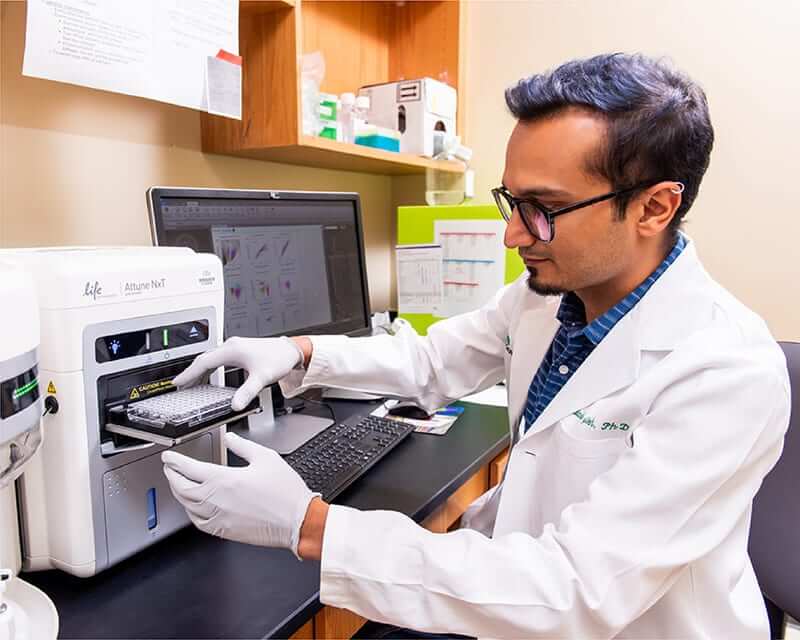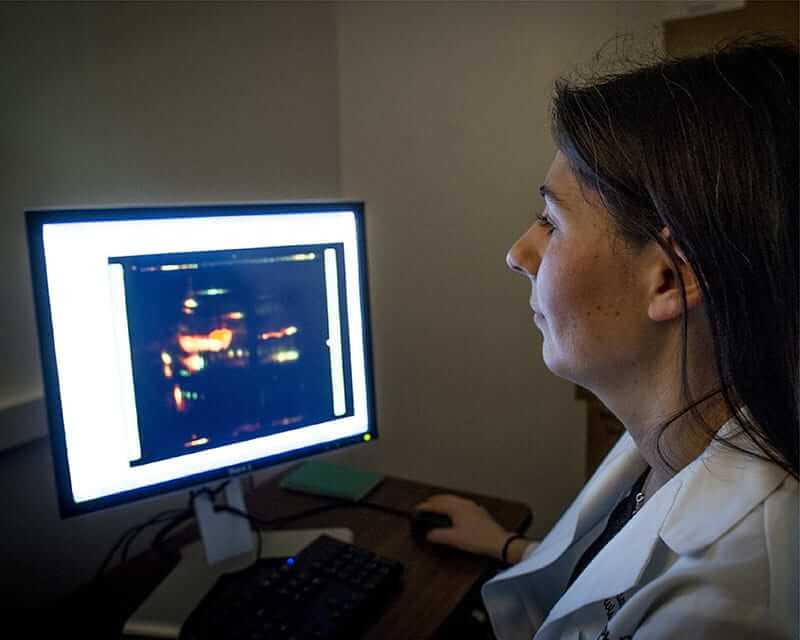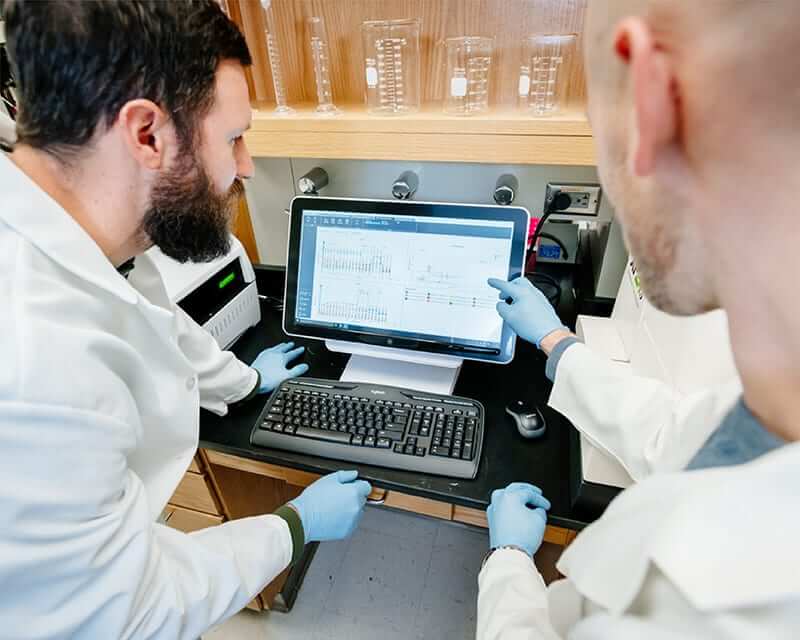Current Postdocs
The Office of Postdoctoral Education (OPE) and the Graduate School have established an incentive plan designed to encourage more postdocs to apply for individual fellowships.
Application Deadline
Applications are accepted on a rolling basis. Please submit the completed applications to
Details
The OPE will provide a monetary incentive for postdocs to apply for individual fellowships funded by extramural agencies or foundations. Postdocs who apply for an individual fellowship (e.g. NSF Individual, NIH NRSA, Foundation Fellowships, or other) will be awarded $500 for submitting the application. It is given for first submissions only.
To qualify, the application must be reviewed by your mentor, prior to submission. Your mentor must provide written verification to the OPE that the application is considered competitive. After submission of the grant application, you will provide a PDF of the application to the OPE. The incentive reward will be authorized when you provide evidence that the application has been received by the granting agency.
If the application is funded, you will receive an additional financial reward of $1,500 per year for the term that the grant is funded. The supplemental funding will be provided by the OPE and the Graduate School. You will provide a copy of the award notice and the Request for Individual Fellowship Supplement Funding Form in order to receive the additional financial reward.
Eligibility & Requirements
This program is available to all postdoctoral scholars through the OPE. GME-appointed postdoctoral residents are not eligible. To be eligible for both the submission reward and the $1,500 supplement, the awarded funding must provide more than half of your current base stipend. Your eligibility for the supplement is contingent on your appointmetn as a status code 20 postdoc trainee.
Applications for and receipt of travel and other small grants are not eligible for an incentive award under this program.
Application Materials
To receive the application incentive of $500, the following materials are required:
- a letter from the postdoc’s advisor verifying that the advisor reviewed the application and believes that it is competitive
- documentation that the amount of the fellowship provides greater than half of the postdoc’s current base stipend
- a PDF of the application
- verification of receipt of the application by the funding agency
These materials may be submitted through the form below.
Application Incentive Submission Form
Note: Applications submitted prior to December 1, 2020 will not be eligible for the $500 application incentive, but active Individual Fellowships are eligible for the $1,500 annual inventive.
 Funding is an important part of the postdoc experience. The Office of Postdoctoral Education (OPE) provides support and avenues for postdocs to find internal and external funding opportunities.
Funding is an important part of the postdoc experience. The Office of Postdoctoral Education (OPE) provides support and avenues for postdocs to find internal and external funding opportunities.
The OPE sponsors several awards for postdocs, including:
- a travel award,
- a career enhancement award, and
- an internship award
There are also a number of training grants at UAB that postdocs can apply to.
UAB and the OPE also encourage all postdocs to apply for individual fellowships. We provide tools you can use to identify funding options that align with your research interests and career stage. This includes a list of private foundation funding that does not have a citizenship requirement. Funding opportunities through the OPE are open to all current UAB postdocs to enhance their current and future career goals. Some of the training grant opportunities through UAB are limited to US nationals only.
If you would like to discuss which specific awards or grants would be appropriate for you to apply to, please contact us.
 OPE's Certificate in Postdoctoral Professional Development supports postdocs who are interested in enhancing their professional development. The goal of the certificate is to prepare you to be competitive for professional opportunities after the completion of your training at UAB.
OPE's Certificate in Postdoctoral Professional Development supports postdocs who are interested in enhancing their professional development. The goal of the certificate is to prepare you to be competitive for professional opportunities after the completion of your training at UAB.
The certificate includes 15 credit hours of courses (9 required/core + 6 electives). They address six core competencies described by the National Postdoctoral Association (NPA):
- leadership and management skills,
- responsible conduct of research,
- communication skills,
- professionalism,
- discipline-specific conceptual knowledge, and
- research skill development.
The certificate is intentionally flexible in order to reinforce competencies through the core curriculum, while also allowing you to determine how you would like to invest in other competences through electives. See required and elective courses in the UAB Course Catalog opens a new website.
If you have questions about the certificate and/or would like to register, please contact OPE at
 Each year, the UAB Office of Postdoctoral Education sponsors courses in lab management, translational science, grant writing, and job skills. The job skills and grant writing courses are also open to senior graduate students at UAB.
Each year, the UAB Office of Postdoctoral Education sponsors courses in lab management, translational science, grant writing, and job skills. The job skills and grant writing courses are also open to senior graduate students at UAB.
You can see a full list of available courses and when they will be offered on UAB's class schedule listing opens a new website.
Courses
Grant Writing Course for Postdoctoral Scholars
This course introduces postdoctoral scholars to every aspect of grant writing, including selecting funding mechanisms, writing individual grant sections, and understanding administrative policies. In addition, it provides participants with the opportunity to write a grant and have it reviewed through a mock-study section with faculty who evaluate trainee applications for the NIH.
Principles of Scientific Integrity
Topics covered in GRD 717 include:
- the nature, extent, and causes of fraud in science;
- UAB policies on fraud;
- ideals of good science;
- the responsibilities of authorship and peer review;
- potential problems raised by the commercialization of research;
- scientists as public policy advisors; and
- ethical issues involved in animal experimentation and in clinical trials.
Lab Management Course for Postdoctoral Scholars
GRD 773 introduces postdoctoral students to every aspect of laboratory management, including hiring staff, managing start-up budgets, practicing safe laboratory practices, and time management.
EXPERIENCES Program
Workforce reports show that pre- and postdoctoral trainees need to be informed and educated about careers within and outside traditional academic research to be job-ready in today’s economy.
CCTS Research Training Program
This program provides academic training in the principles required to excel in today's dynamic clinical research environment. This program provides research staff (study coordinators, billing staff, regulatory coordinators, etc.) with the basics of implementing and managing a clinical study or trial with an emphasis on good clinical practices, research compliance, and other key topics.
Apply Now
To take credit bearing courses as a postdoctoral scholar, you must register as a non-degree seeking student. Learn more about registering for classes.
 UAB has a strong and ongoing commitment to the responsible conduct of research (RCR). The campus offers many opportunities for initial and annual training including formal courses through:
UAB has a strong and ongoing commitment to the responsible conduct of research (RCR). The campus offers many opportunities for initial and annual training including formal courses through:
- the Center for Ethics and Values in the Sciences
- the Graduate School
- the Office of Postdoctoral Education (OPE), and
- through programs and training sponsored on a regular, ongoing basis by the Institutional Review Board (IRB), Conflict of Interest Review Board (CIRB), Institutional Animal Care and Use Committee (IACUC), Occupational Health and Safety (OHS), and the UAB Center for Clinical and Translational Science (CCTS).
All entering biomedical sciences trainees are educated during orientation about requirements to complete human subjects and animal use and care training programs. Completion of requisite training is arranged and documented by their specific graduate programs.
All trainees are required to participate in and satisfactorily complete Principles of Scientific Integrity (GRD 717) within the first year of training. Yearly refresher RCR activities are required, including additional ethics courses and/or utilizing Institutional resources such as training videos developed by the UAB Center for Ethics and Values in Sciences.
UAB has also developed a new scholarly integrity workshop “Ethics for Authors opens a new website,” which is organized around interactive and facilitator-led discussions and exercises.
All mentors are advised and encouraged to include and document discussions regarding RCR during their one-on-one interactions with their students, mentor/student meetings, lab meetings, discussions of authorship on papers, how to handle various types of data, etc. As an example, when manuscripts are written, authorship and peer review are discussed. These recommendations will be disseminated to all training faculty by email on an annual basis at the time trainee applications are solicited.
Finally, we note that UAB is one of eight institutions recently awarded funding by the Council of Graduate Schools and the Office of Research Integrity to develop strategies to integrate RCR educational materials into the graduate curriculum, for use by faculty and graduate students in discussion of scholarly integrity. UAB’s national and international leadership in the area of ethics training was reflected by presentations at the 2010 Project for Scholarly Integrity Capstone Conference and the 2012 ORI conference “Quest for Research Excellence” and were highlighted in Research and Scholarly Integrity in Graduate Education: A Comprehensive Approach, published in 2012 by the Council of Graduate Schools.
Year 1 Required Course — Principles of Scientific Integrity
Format
The Principles of Scientific Ethics course (GRD 717; 3 credit hours) includes a blended approach of on-line training and in-person discussion on topics related to the responsible conduct of research (RCR).
Specifically, the on-line training component includes completion of all RCR-related CITI Program modules. Participants are required to successfully complete each of these modules, achieving a score of 80% or better. Once completed, participants then attend an in-person discussion session that consists of an all-day (8 hours) Saturday workshop facilitated by training program directors, preceptors, and administrators. Three Saturday sessions are offered so that participants and facilitators can select a date that best fits their schedules. These sessions debate case-studies in a team-based learning format. They also allow for additional RCR-related activities, such as panel discussions with faculty and administrators regarding real-world RCR examples and role-playing RCR scenarios.
Subject Matter
Topics covered in GRD 717 include:
- the nature, extent, and causes of fraud in science;
- UAB policies on fraud;
- ideals of good science;
- the responsibilities of authorship and peer review;
- potential problems raised by the commercialization of research;
- scientists as public policy advisors; and
- ethical issues involved in animal experimentation and in clinical trials.
Among the areas previously discussed are:
- Ethical Decision Making
- UAB Policies on Research Misconduct
- Protection of Human Subjects in Research
- Welfare of Laboratory Animals
- Best Practices for Data Management
- Identifying and Managing Conflicts of Interest
- Ethical Authorship and Avoiding Plagiarism
- Best Practices in Collaborative Research
- Mentor and Trainee Responsibilities
- Expectations of the Peer Review Process
Faculty Participation
GRD 717 is led by Lisa Schwiebert, Ph.D, Associate Dean, UAB Graduate School, using a team-based learning approach. She is assisted by faculty facilitators, including T32 program directors, who maintain active research labs and have graduate faculty status. These facilitators lead discussions with graduate students and postdoctoral fellows in the responsible conduct of research.
How to Register
First you will need to apply to UAB as a non-degree seeking graduate student. Instructions can be found on Registering for Classes. Permission is not needed to take this course. Once you have been accepted to the Graduate School, you may register through Blazernet. If you have issues registering, please
Important!
Please note that CITI Program modules for IRB and Good Clinical Practice are NOT sufficient to satisfy the course requirement. If you have completed research ethics training during a postdoc appointment, and it is listed on your transcript, please send a copy of your transcript to
 A tuition benefit is offered to all postdoctoral scholars (postdoctoral trainees and postdoctoral employees). Each trainee receives six (6) credit hours of tuition per acadmic year. These courses are to be used to support you as your prepare to take the next steps in your career. Trainees commonly take courses in:
A tuition benefit is offered to all postdoctoral scholars (postdoctoral trainees and postdoctoral employees). Each trainee receives six (6) credit hours of tuition per acadmic year. These courses are to be used to support you as your prepare to take the next steps in your career. Trainees commonly take courses in:
- teaching,
- leadership,
- statistics,
- bioinformatics,
- biomedical sciences, and
- business.
All postdoctoral scholars are required to enroll in and complete successfully the "Principles of Scientific Integrity" (GRD 717) course. The tuition for this course will be covered as part of the six (6) credit hours of tuition allotted per academic year.
Postdocs are permitted to take graduate level courses. Undergraduate courses are not paid for by the OPE. Please reach out to the office to discuss further at
To take credit bearing courses as a postdoctoral scholar, you must ![]() register as a non-degree seeking student. You will not need to pay the application fee, and the OPE will pay for the courses. After being accepted as a non-degree seeking student, contact the OPE for instructions about how to register for courses. You are responsible for any late fees associated with late registration or failure to inform the OPE of course enrollment. Fees not associated with a course are not paid by the OPE.
register as a non-degree seeking student. You will not need to pay the application fee, and the OPE will pay for the courses. After being accepted as a non-degree seeking student, contact the OPE for instructions about how to register for courses. You are responsible for any late fees associated with late registration or failure to inform the OPE of course enrollment. Fees not associated with a course are not paid by the OPE.
To recieve this benefit (consistent with UAB policy for the Educational Assistance Program opens a new website) you must:
- have at least a 3.0 graduate grade point average on any prior graduate course work taken at UAB, and
- maintain an overall UAB graduate grade point average of 3.0 or better. If you fail to maintain the appropriate grade point average, you will not be eligible for the tuition benefit.
 The primary objective of the Office of Postdoctoral Education (OPE) is to provide comprehensive career assistance and resources throughout your postdoctoral tenure and beyond. A pivotal aspect of our mission involves facilitating your ongoing education through tuition support.
The primary objective of the Office of Postdoctoral Education (OPE) is to provide comprehensive career assistance and resources throughout your postdoctoral tenure and beyond. A pivotal aspect of our mission involves facilitating your ongoing education through tuition support.
All UAB Postdocs are entitled to six (6) credit hours of tuition per academic year, which can be utilized for graduate-level coursework. During your initial appointment year, three (3) credit hours will be allocated to cover enrollment costs for the Principles of Scientific Integrity (GRD 717) course.
Completion of the Principles of Scientific Integrity (GRD 717) within the first two semesters of your appointment period is mandatory, as it fulfills the Responsible Conduct of Research requirement. The postdoctoral tuition benefit will defray the expenses associated with this course during your first appointment year.
Annually, the OPE sponsors courses aimed at assisting postdocs and senior graduate students in navigating the job market. These courses encompass topics such as Lab Management, Translational Science, Grant Writing, and Job Skills. Additionally, you have the opportunity to pursue graduate courses and certificates through theaimed at assisting postdocs and senior graduate students in navigating the job market. These courses encompass topics such as Lab Management, Translational Science, Grant Writing, and Job Skills. Additionally, you have the opportunity to pursue graduate courses and certificates through the Office of Professional Studies and Experiential Learning (OPSEL). Moreover the OPE administers a Certificate in Postdoctoral Professional Development dailored to enhance your competitiveness for diverse professional opportunities post-UAB training.
Furthermore, the OPE extends career resources, professional development workshops, and one-on-one career consultations to bolster your professional growth and career trajectory.
Should you have inquiries regarding your tuition benefit and career resources, please do not hesitate to contact us.
 Benefits to postdoctoral scholars vary according to the type of appointment. Due to IRS restrictions placed on non-taxed fellowships, retirement benefits are not allowed for postdoc trainees (Status Code 20). VIVA Health Insurance coverage is provided at no cost to the postdoc with the option of purchasing the dental and vision portion of the insurance plan. Because of their unique status as “Trainees" who do not receive a salary but rather a stipend, these Postdocs are eligible for student housing.
Benefits to postdoctoral scholars vary according to the type of appointment. Due to IRS restrictions placed on non-taxed fellowships, retirement benefits are not allowed for postdoc trainees (Status Code 20). VIVA Health Insurance coverage is provided at no cost to the postdoc with the option of purchasing the dental and vision portion of the insurance plan. Because of their unique status as “Trainees" who do not receive a salary but rather a stipend, these Postdocs are eligible for student housing.
Postdoc employees (Status Code 21), because of their employee-employer relationship with the University, receive a salary. VIVA Health Insurance is available for purchase for UAB postdocs with the additional option of purchasing the dental and vision portion of the insurance plan. Status Code 21 postdocs are not eligible for student housing.
Learn More about Types of Postdoctoral Appointments-
Compensation & Taxes
Compensation & Taxes
Salaries
All mentors at the University of Alabama at Birmingham are strongly encouraged to follow the National Institutes of Health, National Research Service Award (NRSA) stipend level guidelines.
The current compensation amounts for years of experience for 2023 can be found on the NIH website opens a new website.
As of January 1, 2024 the UAB Graduate School in conjunction with the Office of Postdoctoral Education requires a minimum starting stipend of at UAB is $56,400.00 plus benefits. Effective January 1, 2024 Heersink School of Medicine will require that a new minimum stipend that will be indexed with the NIH NRSA stipend pay scale; the sliding scale is commensurate with the postdoctoral scholar's total number of years of training.
UAB is committed to ensuring compliance with sponsor and university requirements while providing effective stewardship of resources. In support of this commitment, it is important to remember that external support of research activities (including salary, supplies, stipends, etc.) must be processed through the UAB Office of Sponsored Programs. This helps ensure transparency and facilitates compliance with UAB’s regulatory and other responsibilities by allowing for institutional reviews (e.g., COI, export control).
Taxes
UAB withholds taxes (federal, state, FICA) from the wages of Postdoctoral Employees (status 21). Postdoctoral Fellows (status 20) do not have taxes withheld from stipends as stipends are not considered taxable income, but they are responsible for paying taxes. These estimated taxes are typically paid quarterly. Due to the intricacies of individual tax situations, please familiarize yourself with federal opens a new website and state opens a new website tax information. International trainees should consult the International Student and Scholar Services opens a new website office for further information on their tax circumstances. -
Benefit Eligibility Table
Benefit Eligibility Table
Accidental Death and Dismemberment Insurance
Employment Category
Status Code
UAB paid Accidental Death and Dismemberment Insurance
Employee paid Accidental Death and Dismemberment Insurance
Postdoctoral Scholar Trainee
20
Yes
Yes*
Postdoctoral Scholar Employee
21
Yes
Yes*
Other Benefits
Employment Category
Status Code
TIAA-CREF Retirement
Viva Health Insurance
Dental and Vision Insurance
UAB paid Group Term Life Insurance
Postdoctoral Scholar Trainee
20
No
Yes
Yes*
Yes
Postdoctoral Scholar Employee
21
Yes, 403(b) Plan matched up to 5% of salary
Yes**
Yes*
Yes
*Individual pays premium.
**Individual pays premium effective December 1, 2016.
- 2023-2024 Benefit Summaries
-
University Benefits
University Benefits
- Viva Health Insurance: VIVA Health is the health care plan for Postdoctoral Trainees (status code 20) and Postdoctoral Employees (status code 21). Coverage under UAB's group health care plan must be elected on either the first day of appointment or the first day of the month following the date of appointment. The postdoc has 31 days from their starting date to complete hospital insurance forms either by participating in UAB New Hire Orientation or by scheduling an appointment with the UAB Employee Benefits. Some form of health insurance coverage is mandatory and proof of insurance is required if the University's health insurance is not elected. VIVA Health also covers medical evacuation and repatriation of remains for international postdoctoral scholars.
- Group Term Life Insurance: Varies with salary. Provided at no cost to the employee. (Sponsored)
- Accidental Death and Dismemberment Insurance: $22,500.00 for accidental death; dismemberment coverage varies. Provided at no cost to the employee. (Sponsored)
- Long Term Disability Insurance (Salary Continuation): After a 90-day waiting period, 66 2/3% monthly salary (not to exceed $10,000 per month) for the first 90 days of benefits. After 90 days of continued benefits, plan pays 60% monthly salary (not to exceed $10,000 per month). Proved at no cost to the employee. (Sponsored)
- Voluntary Retirement Plans
- 403(b) Plan: The 403(b) plan is a voluntary, defined-contribution, tax-deferred as well as Roth after-tax plan governed by the Internal Revenue Code 403(b). Eligible employees can choose between both TIAA/CREF and VALIC for investments. Vesting in the 403(b) plan is immediate. The University matches the individual’s contributions up to 5% of gross monthly pay not to exceed the IRS 401(a) annual compensation limit.
- 457(b) Plan: UAB also offers a voluntary, defined-contribution, tax deferred as well as Roth after-tax plan governed by Internal Revenue Code 457(b). Similar to the 403(b) plan, the 457(b) plan offers the same expanded investment options, convenient payroll deductions, pre-tax contributions, and tax-deferred growth through both TIAA-CREF and VALIC. There are no University matching contributions under this plan.
-
Voluntary Employee-Paid Benefits
Voluntary Employee-Paid Benefits
- Postdoctoral Met Life Dental Basic Option: Preventive and diagnostic are covered at 90% UCR. Basic services are covered at 90% UCR subject to a $25.00 deductible. The postdoc will pay a monthly premium for single or family coverage.
- Postdoctoral Met Life Dental Comprehensive Option: In addition to the basic dental benefits, the comprehensive plan covers major services at 60% UCR subject to the deductible. Orthodontic services are covered at 50% of UCR up to a $1,000.00 per patient lifetime maximum. The postdoc pays the full monthly premium for single or family coverage.
- Vision Service Plan (VSP) Vision Plan: The VSP plan offers employees coverage for routine eye exams, lenses and frames, contacts, and discounts for LAKIK eye surgery. The postdoc pays the full monthly premium for single or for family coverage.
- Group Universal Life Insurance Coverage, Maximum Coverage: Up to five times your Basic Annual Earnings, not to exceed $1.4 million. Guaranteed Issue - Three (3) times salary, not to exceed $500,000.00 during first 60 days of employment without evidence of insurability. Individual pays full premium. Rates vary based on age.
- Accidental Death and Dismemberment Insurance, Maximum Coverage: Lesser of 10 times your basic annual earnings or $500,000.00. Individual pays full premium. Rates vary based on coverage level.
-
Vacation, Sick, & Maternity/Paternity Leave
Vacation, Sick, & Maternity/Paternity Leave
- Vacation Leave: Six months after the effective appointment date, all postdoctoral scholars are eligible for ten (10) paid working days per year. Vacation days do not accrue and cannot be carried over from year to year. All requests for vacation leave should be made in writing and must be approved by the direct supervisor. Postdoctoral Scholars and their supervisors are responsible for maintaining appropriate records.
- Sick Leave: 10 paid working days per year. Sick leave should not be used as vacation. Sick days do not accrue and cannot be carried over from year to year.
- Maternity/Paternity Leave: 22 paid successive working days immediately following or just prior to birth or adoption of a child. If both spouses are employed as postdoctoral scholars, each one is eligible for a consecutive term of maternity/paternity leave. Additional, non-paid leave, following the provisions of the Family Medical Leave Act, must be requested and approved by the supervisor and UAB.
-
Student Loan Deferment
Student Loan Deferment
Postdoctoral scholars at UAB appointed via the Office of Postdoctoral Education as either postdoc trainees (status 20) or employees (status 21) may be eligible for an Education Related Student Loan Deferment under most federal loan programs, including Stafford, Perkins and similar loans. The specific qualification requires that the postdoc be "engaged in a full-time course of study in a Graduate Fellowship program.” To be eligible, the Graduate Fellowship program must:
- provide sufficient financial support to allow for full-time study for a period of at least six months
- require, prior to awarding of financial support, a written statement from each applicant that explains the applicants objectives
- require a graduate fellow to submit periodic reports, projects, or other evidence of the postdoc's progress
Lending agencies may differ in their deferral requirements, and therefore will make the final determination of eligibility.
Forms should be submitted for signature of a University Official to our office at
This email address is being protected from spambots. You need JavaScript enabled to view it. . -
Additional Benefits
Additional Benefits
-
Missing or Distressed Scholars
Missing or Distressed Scholars
UAB Police Emergency Telephone Numbers
- ON CAMPUS: 911
- OFF CAMPUS: (205) 934-3535
Missing Postdoctoral Scholars
- Call and email the postdoc with a request to reply as soon as possible.
- Contact the postdoc’s mentor to determine if they have knowledge of the postdoc’s circumstances.
- If no response:
- Call the postdoc’s emergency contact(s) and request that they contact the postdoc and ask him/her to reply to the program as soon as possible.
- If the emergency contact reports that they are unable to reach the postdoc and they have significant concern, they should be instructed to call the UAB police and request that they visit the postdoc’s residence. You may need to provide information on the postdoc’s vehicle as well an address of residence.
- Please Note: UAB legal recommends that UAB faculty or staff should not personally go to the postdoc’s residence, due to concerns for the personal safety of faculty or staff or other potential liability issues.
- If the emergency contact cannot be reached, UAB Police can be contacted for further assistance.
The police have the responsibility to communicate further with the family depending on the nature of the outcome of the investigation. They may instruct the family to contact the local police department and/or the local fire department for further assistance if there is an urgent health concern. Depending upon the circumstances, the police may or may not communicate their findings with staff in addition to the family. - If it is reported that the postdoc is found to be deceased or in distress, The Office of Postdoctoral Education Staff and others listed below should be contacted immediately:
- Lisa Schwiebert, Associate Dean for Postdoctoral Education: (205) 934-3970,
This email address is being protected from spambots. You need JavaScript enabled to view it. . After hours contact: (205) 965-6504. - Joe Talty, Program Director: (205) 975-7021. After hours contact (205) 999-3397
UAB police will also contact the OPE if information is received by the agency that a postdoc is missing or in distress. - Lisa Schwiebert, Associate Dean for Postdoctoral Education: (205) 934-3970,
- The Office of Postdoctoral Education Staff should be in contact with the family to offer assistance as necessary. OPE will contact (based on the specific situation):
- Media Relations
- Housing and Residential Life
- Student Counseling Services (after hours), (205) 934-5816, to offer grief counseling information to classmates as soon as practical.
- Disability Support Services, International Postdoc and Scholars, etc.
- Risk Management, Legal Counsel, etc.
- Vice President for Postdoc Affairs/Provost
- Family member(s) as appropriate
- Registrar’s Office (in cases where Postdoc is deceased)
Student Counseling Services
- Student Counseling Website opens a new website
- Phone: (205) 934-5816
Postdocs with Apparently Urgent Mental Health or Suicide Issues
For situations involving mental health that are not urgent, contact UAB's Student Counseling Services.
- If the postdoc is on campus, someone (faculty, staff, or postdoc, as appropriate to the immediate situation) should take the postdoc to UAB Hospital Emergency Room immediately. If the postdoc is unwilling, or there is any reason to believe they will not be cooperative, contact the UAB police for further assistance.
- UAB Hospital Emergency Room, North Pavilion opens a new website. 615 18th Street South (Walk-in Emergency Entrance on 18th Street South).
- UAB Police: 911 (on campus) or (205) 934-3535 (off campus)
- The Associate Dean for Postdoctoral Education or the Office of Postdoctoral Education staff should call the ER and speak to the Psych nurse to explain the situation. The ER physician will assess the postdoc and typically request an emergency psychiatric consultation.
- UAB Hospital ER: (205) 934-5105
- If the postdoc is not on campus, ask the postdoc if there is a friend or family member who can come to get them at their residence or to meet them somewhere and transport to the ER. If the postdoc is unwilling, contact UAB police for further assistance.
Please note: UAB legal recommends that UAB Faculty or Staff should not personally go to the Postdoc’s residence, due to concerns for the personal safety of Faculty or Staff or other potential liability issues. - Follow the steps in #5 above.
-
Probationary Period
Probationary Period
Within the first 30 days of an appointment, it is required to draft an individual development plan (IDP). The IDP will state expectations for your research project as well as describe your career goals and objectives. A copy must be forwarded to the OPE for documentation (
This email address is being protected from spambots. You need JavaScript enabled to view it. ). Three months following the drafting of the IDP, you will meet with your advisor to formally review progress with regard to the research training.If it is determined that remediation and/or additional training is required in order to successfully perform the research project, a three month probationary period will begin. If research performance has not improved and/or if there is a lack of research progress as defined in the IDP following the probationary period or at any other time thereafter prior to the appointment end date, the appointment may be terminated with one month’s notice.
Please note that, per the UAB Attendance Policy opens a new website, three consecutive absences without approval from your mentor at any time during an appointment may initiate the termination process. Further, if termination is based upon either academic or non-academic misconduct, advance notice of termination maybe waived. In any case of possible early termination, the case must be discussed with the Dr. Lisa Schweibert, Senior Associate Dean for Graduate and Postdoctoral Affairs prior to termination (
This email address is being protected from spambots. You need JavaScript enabled to view it. ). -
Grievance Policy and Resolution
Grievance Policy and Resolution
The Grievance Policy and Resolution Procedure for postdoctoral scholars of the University of Alabama at Birmingham is an internal mechanism designed to assure prompt and impartial consideration of complaints that may arise in the workplace. The Dispute Resolution Procedure is available to all postdoctoral scholars. UAB postdoctoral scholars may use it without penalty or fear of reprisal.
The procedure is a two-step process. A formal grievance may be invoked only after the prospective grievant has first reported the basis for their dispute to the Associate Dean for Postdoctoral Education (Associate Dean). The Associate Dean shall have a reasonable opportunity to resolve the dispute informally before a grievance can be initiated. If the Associate Dean's effort to resolve the dispute is unsuccessful, they will notify the postdoctoral scholar of their right to initiate a formal grievance.
In order to initiate a grievance, a postdoctoral scholar must provide a written statement to the Associate Dean in which they state specifically the facts believed to support the charge and the desired outcome no later than 30 days following notification from the Associate Dean that a formal grievance may be initiated. After having determined that the facts stated by the postdoctoral scholar may be grieved, the Associate Dean shall notify the responding party that a grievance has been filed, shall provide a copy of the charge, and shall allow the responding party five (5) work days in which to provide to the Associate Dean their response to the allegation(s) made by the grievant.
Guidelines for assessment and monitoring the performance of postdoctoral scholars in all aspects of their position are defined in You and UAB Handbook for Administrative, Professional, and Support Personnel. Guidelines in respect of scientific conduct are defined in the Faculty Handbook and Policies. Both documents can be found in the UAB Policies and Procedures Library opens a new website.
Following receipt of the statement from the responding party, the Associate Dean will select a committee of three faculty members and two postdoctoral fellows to hear the grievance and shall provide to the Committee the written statements of the parties. The faculty members chosen to serve on the Committee shall not have had prior knowledge of the issue(s) grieved. After having chosen one of their number to be chairperson, the Committee shall determine the date of the grievance hearing and shall notify the parties of the date and time of the hearing, which shall not be sooner than five (5) work days from the date notification is sent to the parties by the Committee.
Each party shall be required to provide to the Committee a list of potential supporting witnesses, if any, and a brief statement describing what information each witness has regarding the facts at issue. A witness should be a person with first-hand knowledge of facts pertinent to the resolution of the issue(s) grieved.
The formal grievance hearing shall not be bound by formal rules of evidence or judicial rules of procedure. The Committee may hear any testimony or receive any supporting evidence that it deems to be pertinent to the issue(s) grieved. Both the grievant and the responding party may be present throughout the hearing. The grievant may also be accompanied by an advisor of their choosing, however, the advisor may not participate in the hearing, other than to advise the grievant.
The grievant shall be afforded a reasonable opportunity to be heard, to question witnesses indirectly through the Committee, to rebut adverse evidence, and to make a brief closing statement. Members of the Committee may ask any questions at any time during the hearing and may elect to disallow or to curtail testimony that the Committee determines to be unnecessarily redundant or not probative of the issue(s) being heard. Throughout the hearing, all persons present shall conduct themselves in an orderly manner.
The Committee shall be responsible for the conduct of the hearing at all times. Hearings before the Committee are confidential proceeding and only those persons determined by the Committee to have a need to be present shall be included. Except for the grievant, the responding party and the advisor of the grievant, if any, all other witnesses shall be excluded from the hearing room, except when testifying. No more than one witness shall be called to testify at a time.
All questioning of witnesses shall be by the Committee unless the Committee shall decide otherwise. Although the specific procedure for the conduct of the hearing may vary somewhat, the process shall generally include the following:
- call to order by the Chair;
- introduction of those present;
- statement of the issue(s) grieved;
- presentation of the evidence and testimony in support of the issue(s) grieved;
- questioning of grievant's witnesses;
- presentation of evidence and testimony in opposition to the charge;
- questioning of responding party's witnesses;
- closing statements.
As soon as practical following the conclusion of the hearing, the Committee shall meet in private session to consider all of the evidence presented, and shall decide on one of two outcomes. The outcome shall be determined by a "preponderance of the evidence" standard, that is, that the facts more likely than not either prove or disprove the issue(s) before the Committee. The decision of the Committee shall be that the issue(s) is either
- proven by a preponderance of the evidence or
- not proven by a preponderance of the evidence.
Following their deliberations, the Committee shall provide a brief narrative statement explaining its finding(s) and a summary of the supporting facts. The Committee's written decision shall be transmitted to the Associate Dean for appropriate action. The Associate Dean shall notify the grievant and the responding party of the committee's decision and any action to be taken as a result of the Committee's findings.
Upon notification to the grievant of an adverse outcome, the Associate Dean shall also advise the grievant of their right to appeal the Committee's decision in writing to the Dean of the Graduate School. An appeal to the Graduate School Dean shall be limited to the presentation of new, previously unavailable evidence, and/or the identification of procedural error in the hearing process.
After a review of any new evidence presented on appeal and a review of the process afforded the grievant, the Graduate School Dean shall notify the grievant, the responding party and the Associate Dean of their decision, which shall be final.
-
Tuition Benefit, Class Registration, and Dropping Classes
Tuition Benefit, Class Registration, and Dropping Classes
The OPE provides six (6) credit hours of tuition per appointment year for each trainee. Postdocs are expected to attend all courses they register for. Postdocs are highly encouraged to speak with the course instructor prior to enrolling in a class to ensure it will provide the information needed to help take the next step in their career, and that the postdoc is informed of the expectations of students taking the course. Postdocs will be allowed to register for classes, and drop classes until the Last Day to Drop/Add (Without paying full Tuition & Fees), as listed in the Academic Calendar opens a new website. If a postdoc wishes to drop a course after the Last Day to Drop/Add, they will forfeit the tuition benefit provided by the OPE for the next 12 months.
 Welcome to UAB! You’ve joined a robust and vibrant community of scientists dedicated to advancing science and innovation. The Office of Postdoctoral Education is here for you as a hub for administrative, professional development, and wellness support.
Welcome to UAB! You’ve joined a robust and vibrant community of scientists dedicated to advancing science and innovation. The Office of Postdoctoral Education is here for you as a hub for administrative, professional development, and wellness support.
Your postdoc is a time for training you as a researcher and supporting you in discovering and preparing for your future career. We view your training from a holistic standpoint with an emphasis on providing:
- support
- resources
- avenues for continuing education, both through courses in the UAB Graduate School and grants to attend workshops outside of UAB.
As you explore the resources below we encourage you to reach out to the members of the OPE team with questions.



